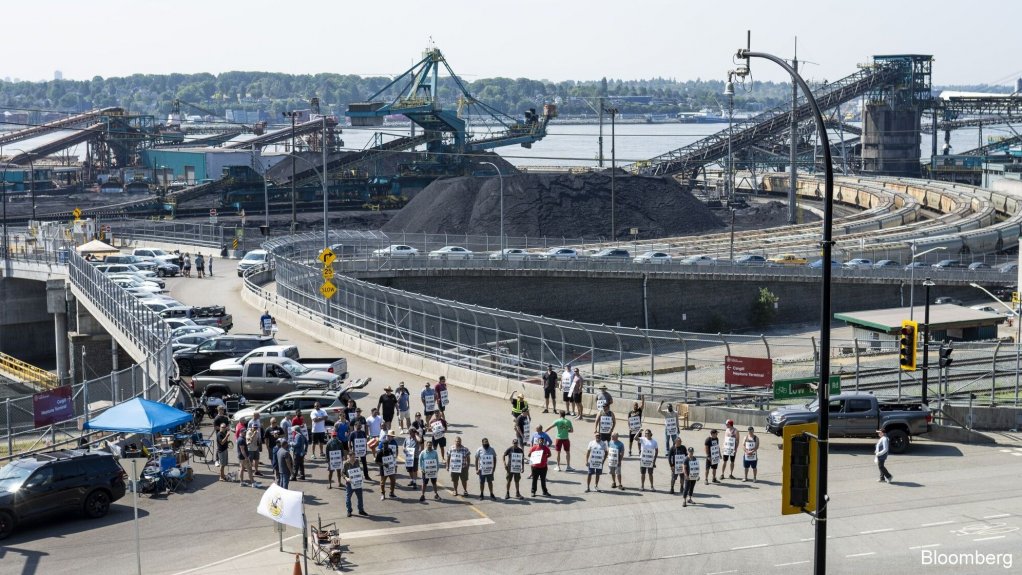Canadian dockworkers and their employers remained deadlocked as a strike crippling West Coast trade entered its fifth day, threatening the country’s economy.
Negotiations broke down Monday when the British Columbia Maritime Employers Association walked away from the bargaining table, accusing the International Longshore & Warehouse Union Canada of trying expand its jurisdiction over maintenance activities at ports, said Rob Ashton, president of the union. Talks remained paused Wednesday morning pending discussions with federal mediators, the BCMEA said.
A total of 51 ships were either berthed or at anchor near Vancouver, port data show, including at the Port of Vancouver. Two of seven terminals at Prince Rupert have been affected, the Prince Rupert Port Authority said. Almost 20% of Canada’s traded goods flow through both ports, the country’s first and third largest, representing more than C$800-million worth of cargoes a day, according to BMO Capital Markets Corp.
More than 120 business associations sent a joint letter to Prime Minister Justin Trudeau urging the government to safeguard the supply chain and pass back-to-work legislation. Canadian Pacific Kansas City and Canadian National Railway, the country’s two rail companies, said they reduced movement of rail cars to West Coast ports.
In April C$4.9-billion of goods were exported from British Columbia, including more than C$1-billion of coal, Statistics Canada data show. Imports totaled C$5.8-billion and included gas liquefaction equipment, vehicles, airplane parts and biodiesel. Grain shipments have continued as required by the labor code.



